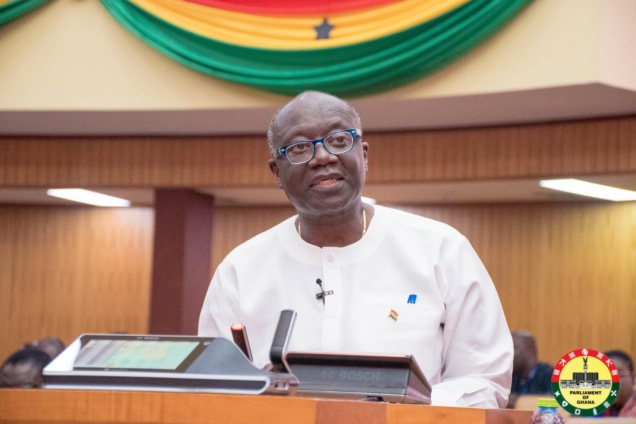An Economist has likened government's mood in the wake of an International Monetary Fund (IMF) Programme approval for Ghana to a couple on honeymoon.
Dr Sa-ad Iddrisu explained that the disbursement of the first of tranche of about $600 million to the Bank of Ghana seems to have engendered a sense of joy and a feeling that the country's problems are finally solved.
According to him, the country is about to get into the "real marriage", where it would have to make judicious use of the first tranche.
"Everything happening now is like a honeymoon period. When you're newly married, you're so excited, everything looks good and all that. That is what we're having now in Ghana.
"So let's see how we'll move from the honeymoon period to the real marriage. That is where the issues come in.
"Look at what is already happening in the Kumawu by-election. Definitely, there'll be financing going on and stuff like that. So can the government really commit to the fiscal discipline?" he said on JoyNews' AM Show on Monday.
The economist added that the recent appreciation of the cedi amidst the "honeymoon period" cannot necessarily be attributed to government's efforts but rather "speculations in the market."
"It's not like government has done anything as we speak," he added.
Following the approval of Ghana's $3bn bailout request and the subsequent disbursement of the first tranche, many individuals and experts have advised government not to jubilate just yet but focus on making good use of the funds.
Many have also criticised the government for making an IMF programme its primary solution whenever it finds itself in crisis given that the country heads back to a downturn once the programme expires.
Some say it is not as though the government does not know exactly what to do but it is a case of lack of political will and the resort to pursue initiatives that yield short-term results.
“So the issue is that it’s not like we don’t know what to do in this country. We know what to do but basically, it boils down mostly to the lack of political will most times and the fact that essentially, these structural reforms require a lot more time than a political cycle.
"So you see, the challenge we face is that we turn to try to quick fixes, short-term results to show that the government has done something.
“I can understand the position politicians are in because they are looking at the next election,” An Economist, Dr Priscilla Twumasi Baffour said on Newsfile on Saturday.
Latest Stories
-
Town council in Canada at standstill over refusal to take King’s oath
29 mins -
Trump picks Pam Bondi as attorney general after Matt Gaetz withdraws
41 mins -
Providing quality seeds to farmers is first step towards achieving food security in Ghana
51 mins -
Kenya’s president cancels major deals with Adani Group
2 hours -
COP29: Africa urged to invest in youth to lead fight against climate change
2 hours -
How Kenya’s evangelical president has fallen out with churches
2 hours -
‘Restoring forests or ravaging Ghana’s green heritage?’ – Coalition questions Akufo-Addo’s COP 29 claims
2 hours -
Ensuring peaceful elections: A call for justice and fairness in Ghana
3 hours -
Inside South Africa’s ‘ruthless’ gang-controlled gold mines
4 hours -
Give direct access to Global Health Fund – Civil Society calls allocations
4 hours -
Trudeau plays Santa with seasonal tax break
4 hours -
Prince Harry jokes in tattoo sketch for Invictus
4 hours -
Akufo-Addo commissions 200MW plant to boost economic growth
5 hours -
Smallholder farmers to make use of Ghana Commodity Exchange
5 hours -
I want to focus more on my education – Chidimma Adetshina quits pageantry
5 hours

